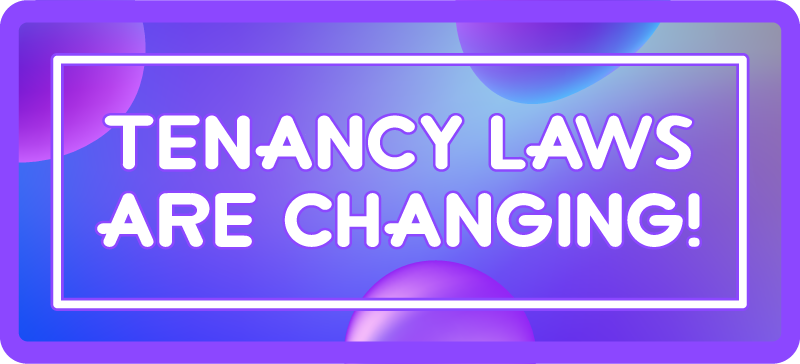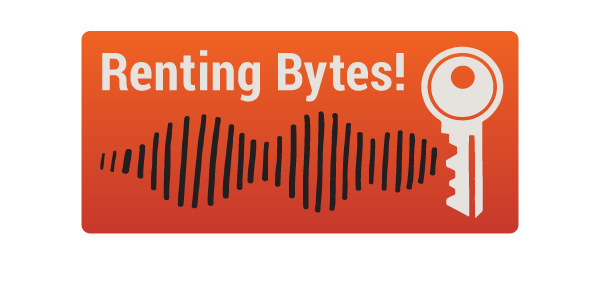Housing News Digest
Housing News Digest
The Tenants' Union Housing News Digest compiles our pick of items from all the latest tenancy and housing media, sent once per week, on Thursdays.
Below is the Digest archive from November 2020 onwards. From time to time you will find additional items in the archive that did not make it into the weekly Digest email. Earlier archives are here, where you can also find additional digests by other organisations.
Our main email newsletter, Tenant News is sent once every two months. You can subscribe or update your subscription preferences for any of our email newsletters here.
See notes about the Digest and a list of other contributors here. Many thanks to those contributors for sharing links with us.
We love sharing the news and hope you find it informative! We're very happy to deliver it for free, but if you find it valuable, can you help cover the extra costs incurred by making a donation?
Archive
Canada’s housing crisis will not be solved by building more of the same
Ipek Tureli The Conversation (No paywall)Canada’s “housing bubble,” along with increasing sale and rental prices, has led to calls for building more housing. However, the housing crisis will not be solved by building more of the same like condos and suburban homes for single families. But alternatives to housing-as-commodity could offer a partial solution to the bubble, and housing inequality more broadly. One underlying reason for calls for more housing supply is the notion of private property and its historical connection to citizenship. Early Canadian legislation divided and granted land to white settlers as private property to encourage occupation. Another reason is financial; home ownership is seen as a means of wealth accumulation, and government policies and actions — like low mortgage interest rates — fuel this vision. Neoliberalization since the 1980s and financialization since the 2000s have created the current conditions of housing inequality in Canadian cities and beyond.
https://theconversation.com/canadas-housing-crisis-will-not-be-s…
# International, Public and community housing, Coronavirus COVID-19, Homelessness, Housing affordability, Housing market.‘Catastrophic’ fire test in 2002 meant government should have had ‘no doubt at all’ that Grenfell cladding should not be used
Peter Apps Inside Housing (Paywall)The polyethylene-cored aluminium composite material (ACM) cladding was subjected to a government-funded test in summer 2001 and failed horrendously, with 20-metre flames appearing after just five minutes. The results of this test were delivered to officials in September 2002, but no warning was issued to the industry and a fire standard which appeared to permit its use was not removed from official guidance, despite what was described today as “an immediate and present risk to life”. It means the government knew of the risks of ACM 15 years before the fire at Grenfell Tower killed 72 people, and 12 years before the decision to clad its walls in the material. The inquiry has already established that the cladding panels were the “primary cause” of the rapid fire spread.
https://www.insidehousing.co.uk/home/home/catastrophic-fire-test…
# International, Asbestos, lead, hazardous materials, Housing market.‘There will be another shock’: RBA warns about big mortgages as rates rise
Shane Wright and Jennifer Duke The Sydney Morning Herald (Paywall)Reserve Bank governor Philip Lowe is warning home buyers with big mortgages will be a weak spot in the economy when rates are lifted above record low levels as the nation’s biggest lender increases fixed rate mortgages. ... Australian households are among the most heavily indebted in the world, with debt to household disposable income at a record high of 140.5 per cent.
https://www.smh.com.au/politics/federal/there-will-be-another-sh…
# Australia, Home ownership, Housing market.Is a short or long-term letting better for your investment property?
Sue Williams Domain (No paywall)As so many investors bought property during COVID-19 in regional tree-change areas, many are now working out what to do as the pandemic, hopefully, subsides. ... “I’m lucky to be in the financial situation where I can enjoy a split between both places ... [Or] For others, it’s more of a choice between letting out their property as a regular residential tenancy – especially with the rental vacancy rate so low in many regional areas, and rents, as a result, so high – or putting it on a short-stay platform.
https://www.smh.com.au/property/news/short-vs-long-term-letting-…
# Australia, Coronavirus COVID-19, Housing market, Landlords and agents.Rental price increases in South Australia making housing unaffordable for jobseekers
Rebecca Puddy ABC (No paywall)A rental housing crisis is affecting some of SA's most vulnerable people, with low-income earners facing significant financial stress, according to the South Australian Council of Social Service (SACOSS). A cost-of-living analysis by SACOSS found rental costs had risen sharply over the past 20 years, outstripping any increases in inflation and the JobSeeker allowance. ... SACOSS chief executive Ross Womersley said a reduction in the amount of public housing in South Australia had a large part to play in the pressure being experienced. He said in 2000, public housing made up 10 per cent of the rental market, but today public housing constituted less than 7 per cent. "While much of the public debate around housing affordability centres on home owners and house prices, it is often renters that have the biggest affordability challenges, particularly those on the lowest incomes," Mr Womersley said. "Many of the levers of rental affordability lie with the federal government, but the biggest thing the state government could do would be to invest in social housing.
https://www.abc.net.au/news/2022-02-23/jobseekers-struggle-to-se…
# Australia, Public and community housing, Rent, Federal Government, Housing affordability, Housing market, State Government, Work, employment.Sydney’s global city status ‘at risk’ from developer levy overhaul
Michael Koziol The Sydney Morning Herald (Paywall)The City of Sydney council estimates it will be $650 million worse off by 2040 under the state government’s proposed changes to developer levies, a shortfall it says would endanger Sydney’s status as a global city and harm the state’s recovery from the pandemic. It comes as new Planning Minister Anthony Roberts hits reset on the government’s approach, extending the time frame for councils to provide feedback and promising to only proceed with changes that boost housing and infrastructure supply. ... Lord mayor Clover Moore said she was “quite frightened” by the potential impact of the changes. “It’s a really, really serious issue for us. If we don’t convince the government to abandon this proposal ... it could be a really desperate situation for the future.”
https://www.smh.com.au/national/nsw/sydney-s-global-city-status-…
# NSW, Housing market, Local Government, Planning and development, State Government, Tax.A Slow Beginning for Plan to Move Homeless People Off Subway
Andy Newman and Ana Ley The New York Times (Paywall)On the first morning rush hour since Mayor Eric Adams announced a sweeping plan on Friday to remove homeless people who shelter in the New York City subway, the transit system felt a little different. ... At Pennsylvania Station in Manhattan, outreach workers in orange vests, carrying clipboards, fanned out in search of homeless people to help. Police officers approached two men, one sleeping at the foot of a staircase, another lying on the floor, and told them they had to move. ... The outreach workers at Penn Station were offering homeless people the usual limited choices, generally a bed in a group shelter. And they were getting the usual no-thank-yous. Many homeless people refuse to stay in shelters because they find them dangerous or because they have extensive rules and curfews. [Read on]
https://www.nytimes.com/2022/02/22/nyregion/homeless-people-subw…
# International, Homelessness.Should you be able to know how much your neighbours sold their house for?
Elizabeth Redman Domain (No paywall)Secret sale prices are in the spotlight after the Victorian government’s property market review raised the issue of uneven access to price information. In most cases, when a property for sale finds a buyer, the selling agent marks its online listing as sold and includes the sold price, but sometimes labels it “price withheld”.
https://www.smh.com.au/property/news/should-you-be-able-to-know-…
# Australia, Housing market.



